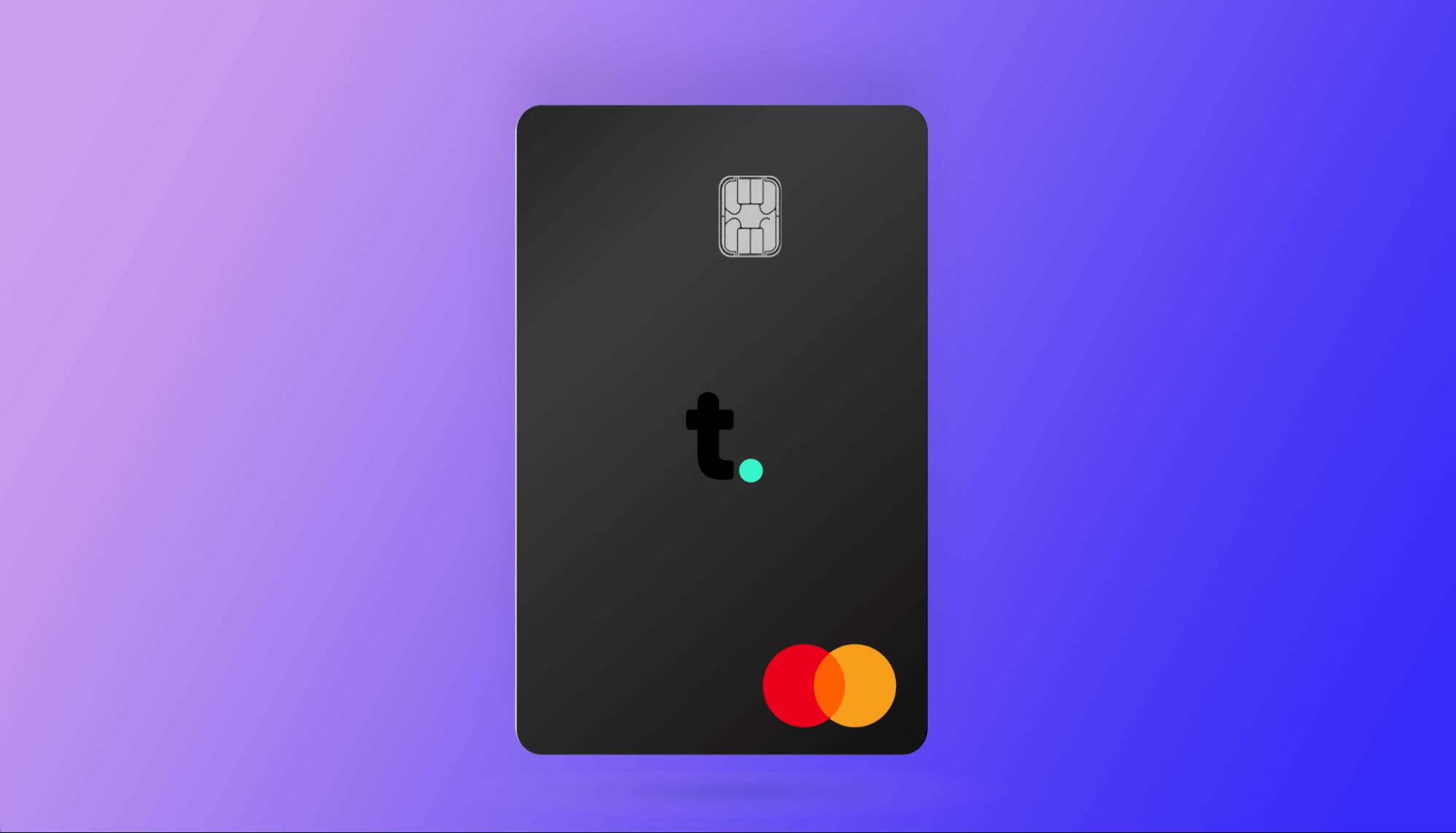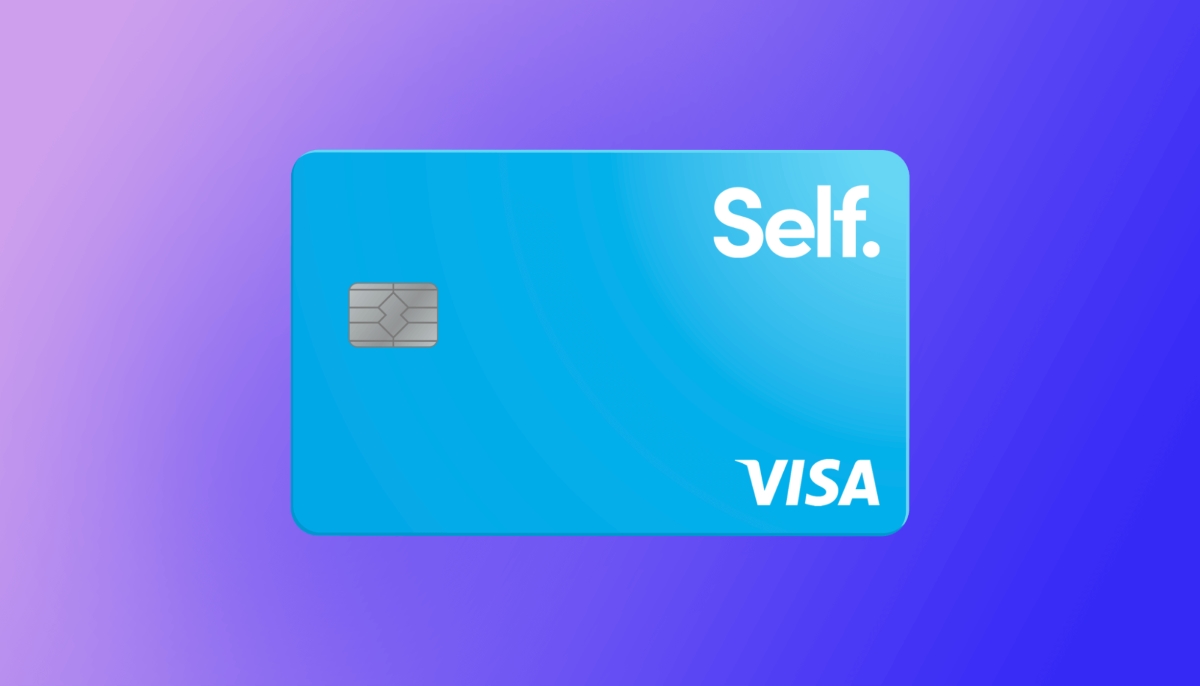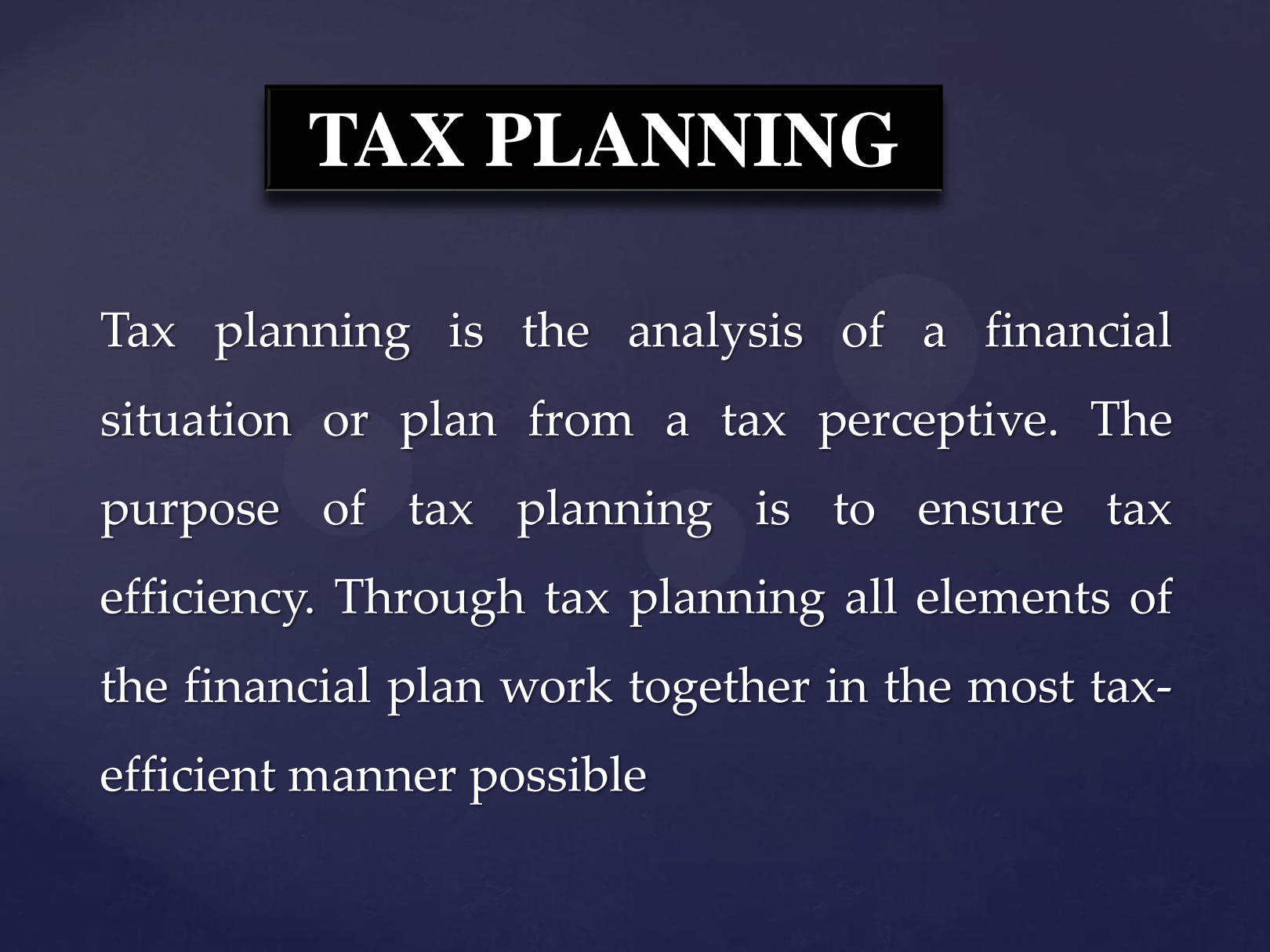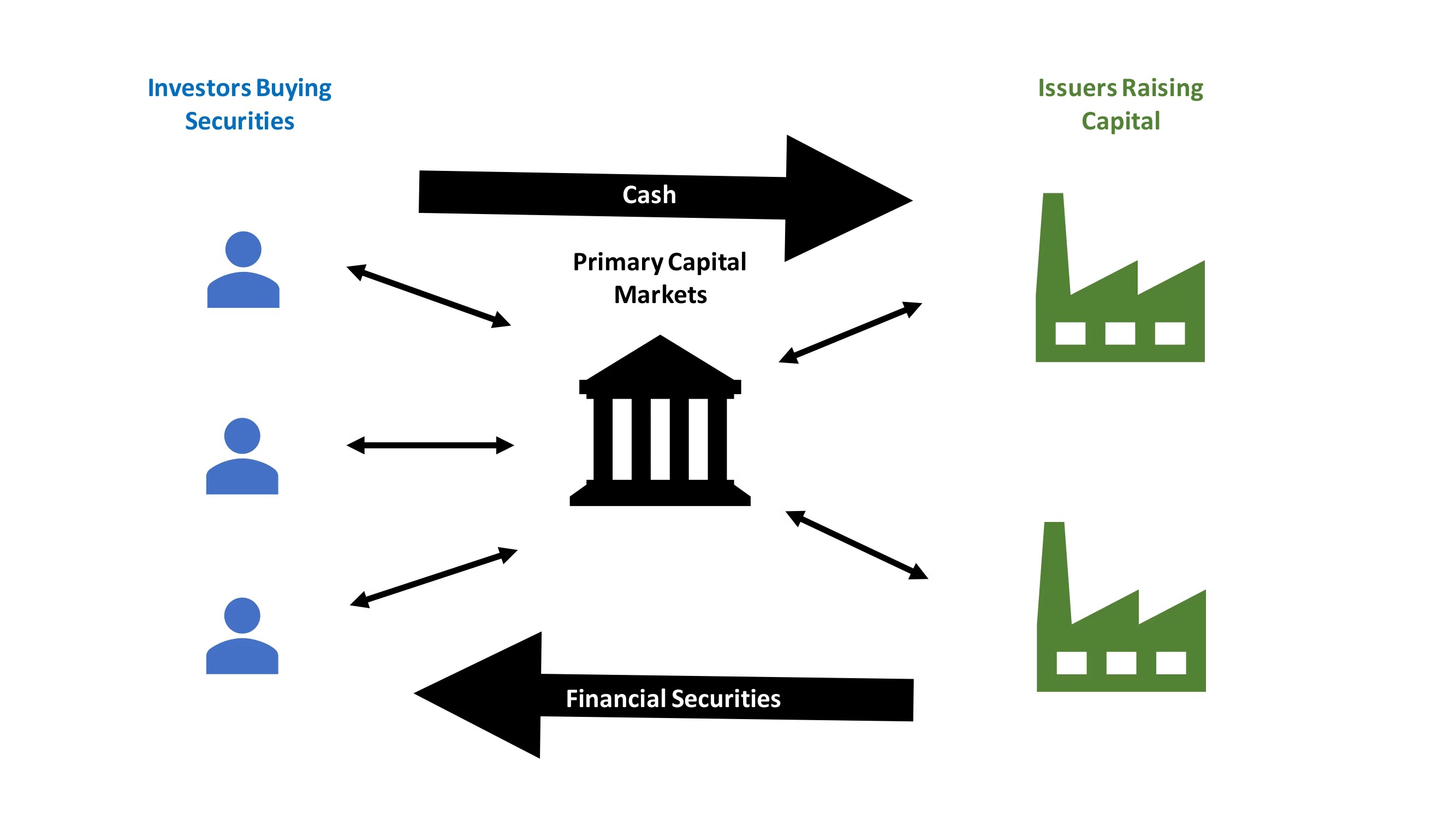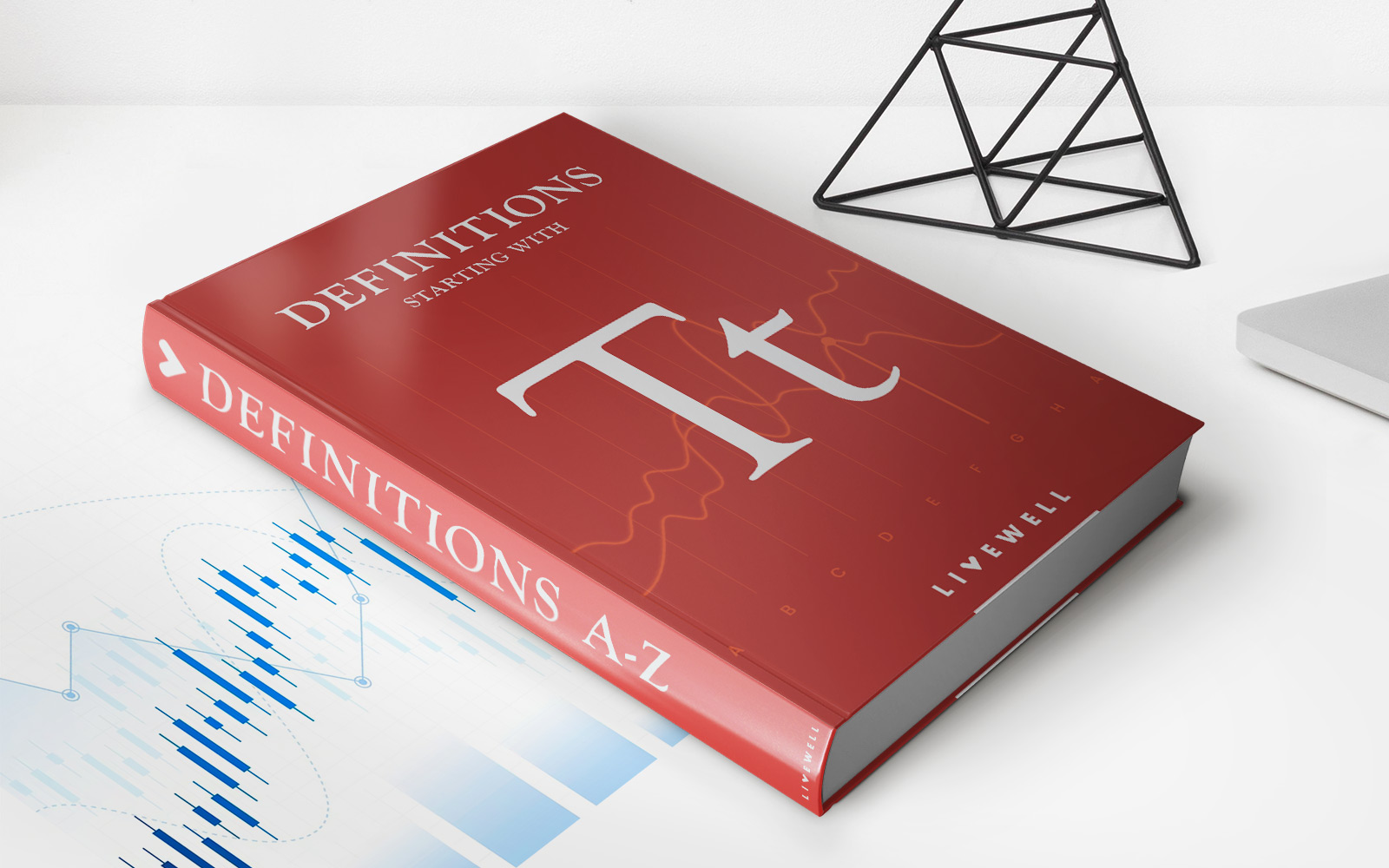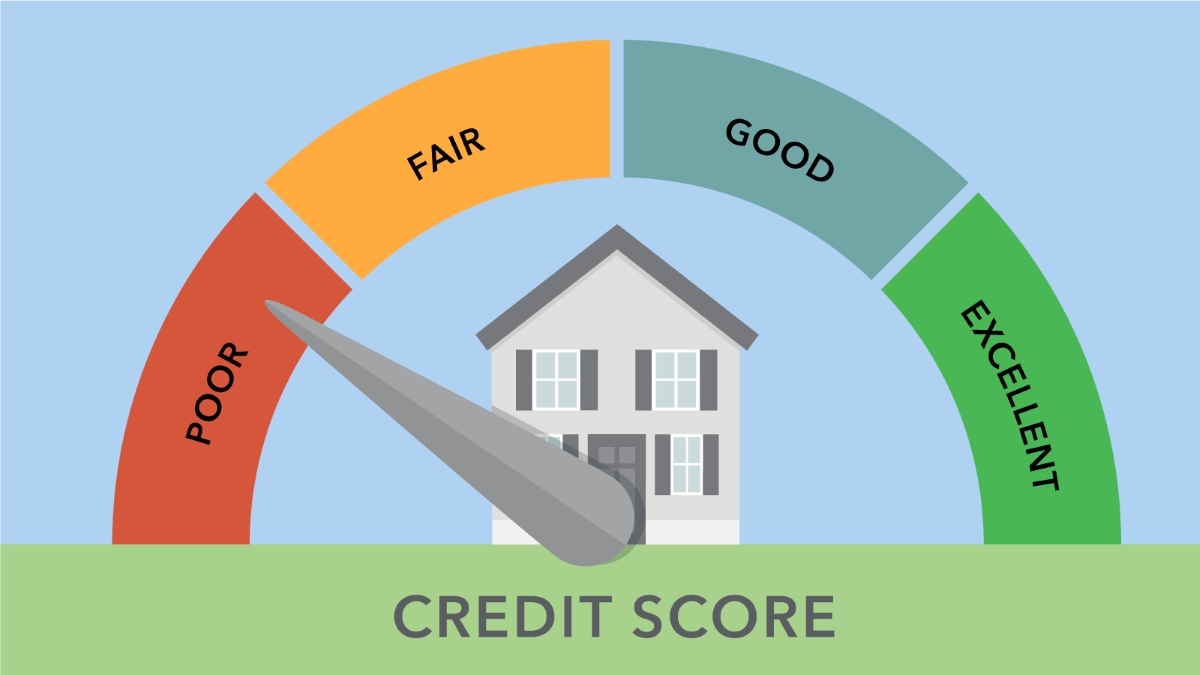

Finance
How Does Credit Work?
Modified: February 25, 2024
Learn how credit works in the world of finance. Discover the ins and outs of managing credit, building a good credit history, and improving your credit score.
(Many of the links in this article redirect to a specific reviewed product. Your purchase of these products through affiliate links helps to generate commission for LiveWell, at no extra cost. Learn more)
Table of Contents
- Introduction
- Definition of Credit
- Types of Credit
- Credit Scores and Reports
- Factors Affecting Credit
- Establishing Credit
- Using Credit Wisely
- How Credit Cards Work
- Applying for Credit
- Understanding Interest Rates
- Credit Limit and Utilization
- Making Payments
- Impact of Late Payments
- Credit Card Rewards and Benefits
- Credit Repair and Rebuilding
- Protecting Your Credit
- Conclusion
Introduction
Welcome to the world of credit! Whether you’re taking out a loan for a new car, applying for a mortgage to buy a home, or simply using a credit card for everyday purchases, understanding how credit works is essential.
So, what exactly is credit? In simple terms, credit is the ability to borrow money or access goods and services with the promise of paying for them in the future. It’s a financial tool that allows individuals and businesses to make purchases and fulfill financial needs when they don’t have immediate cash on hand.
Having a good understanding of credit is crucial because it plays a significant role in many aspects of our lives. It affects our ability to secure loans, get favorable interest rates, rent an apartment, purchase a car, and even land a job. Therefore, learning how credit works and how to manage it responsibly is essential for financial success.
In this article, we will delve into the world of credit, exploring its various types, how it is scored and reported, and the factors that impact your creditworthiness. We will also discuss how to establish credit, use it wisely, and navigate the world of credit cards. Additionally, we will cover important topics such as applying for credit, understanding interest rates, and protecting your credit.
By the end of this article, you will have a comprehensive understanding of how credit works and be equipped with valuable knowledge to make informed decisions about your financial future.
Definition of Credit
Credit is a financial concept that allows individuals and businesses to borrow money or access goods and services with the promise of repayment in the future. When you use credit, you are essentially borrowing money from a lender for a specific purpose, such as making a purchase or covering expenses.
There are two primary types of credit: revolving credit and installment credit. Revolving credit, commonly associated with credit cards, allows you to borrow money up to a certain limit and make regular payments based on the outstanding balance. Installment credit, on the other hand, involves borrowing a specific amount of money upfront and repaying it over a set period of time through fixed monthly payments.
When you use credit, you enter into a contractual agreement with the lender, outlining the terms and conditions of the borrowing arrangement. This typically includes the loan amount, interest rate, repayment period, and any associated fees. It’s important to carefully review and understand these terms before accepting any credit offer to ensure you can meet your repayment obligations.
One key aspect of credit is the interest charged by the lender, which is the cost of borrowing the money. Interest is usually expressed as an annual percentage rate (APR) and can vary based on factors such as your creditworthiness, the type of credit, and prevailing market conditions. When you repay the borrowed amount, you generally pay back not just the principal, but also the interest accrued over the repayment period.
Additionally, credit can be classified into two categories: secured and unsecured. Secured credit is backed by collateral, such as a home or car, which serves as security for the lender in case of default. Unsecured credit, on the other hand, does not require collateral and is typically based on the borrower’s creditworthiness and income.
Understanding the intricacies of credit and the different terms associated with it is essential as you navigate the financial world. By grasping the definition and various types of credit, you will be better equipped to make informed decisions and manage your finances responsibly.
Types of Credit
Credit comes in various forms, each serving different purposes and catering to different financial needs. Here are some of the most common types of credit:
- Credit Cards: Credit cards are a widely used form of revolving credit. They allow you to make purchases up to a predetermined credit limit. You can choose to pay off the balance in full each month or make minimum payments with interest. Credit cards often come with additional perks like rewards programs, cash-back offers, and purchase protection.
- Personal Loans: Personal loans are installment loans that can be used for a variety of purposes, such as debt consolidation, home improvements, or unexpected expenses. They usually have a fixed interest rate and repayment term, and the borrowed amount is typically deposited directly into your bank account.
- Auto Loans: Auto loans are installment loans specifically designed for purchasing a car. They come with a fixed interest rate and repayment period. The vehicle itself serves as collateral, which means the lender can repossess it if you default on your payments.
- Mortgages: A mortgage is a long-term loan used to finance the purchase of a home. It is one of the largest and most significant types of credit. Mortgages can have variable or fixed interest rates and typically have repayment periods of 15 to 30 years.
- Student Loans: Student loans are specifically designed to help students finance their education. They come in various forms, including federal loans and private loans. Federal student loans often offer more flexible repayment options and lower interest rates compared to private loans.
- Business Loans: Business loans are credit options available to entrepreneurs and business owners. They can be used for starting a new business, expanding an existing one, or financing operational expenses. Business loans can be secured or unsecured and usually have specific requirements and repayment terms.
- Home Equity Loans and Lines of Credit: These types of credit are secured by the equity you hold in your home. Home equity loans provide a lump sum of money, while home equity lines of credit (HELOCs) work like credit cards, allowing you to borrow and repay multiple times.
These are just a few examples of the various types of credit available. Choosing the right type of credit depends on your specific financial situation and the purpose for which you need the funds. Understanding the different options can help you make informed decisions and select the credit option that aligns with your needs and goals.
Credit Scores and Reports
Credit scores and reports play a crucial role in the world of credit. They provide lenders with an assessment of your creditworthiness, helping them determine whether to approve your credit applications and what interest rates to offer. Understanding how credit scores and reports work is essential for managing your credit effectively.
A credit score is a three-digit number that represents your creditworthiness. The most commonly used credit scoring model is the FICO Score, which ranges from 300 to 850. The higher your credit score, the more likely you are to be approved for credit and offered favorable terms. Lenders consider various factors when calculating your credit score, including your payment history, credit utilization, length of credit history, types of credit used, and recent credit inquiries.
Your credit report is a detailed record of your credit history. It includes information such as your personal identifying information, accounts you have open, balances owed, payment history, and any negative information such as late payments, bankruptcies, or collections. Credit reports are compiled by credit reporting agencies (CRAs) such as Equifax, Experian, and TransUnion, who gather information from lenders and other sources. It’s important to regularly review your credit report to check for accuracy and ensure there are no errors or fraudulent activities.
Factors that can impact your credit score and report include:
- Payment History: Making your credit payments on time contributes positively to your credit score, while late or missed payments can have a negative impact.
- Credit Utilization: The amount of credit you are currently using compared to your total credit limit, known as your credit utilization ratio, is an important factor. Keeping your credit utilization low, ideally below 30%, can help improve your credit score.
- Length of Credit History: Having a longer credit history demonstrates your ability to manage credit over time. It’s beneficial to keep old accounts open, even if you don’t use them frequently, as they contribute to the length of your credit history.
- Types of Credit: Having a mix of different types of credit, such as credit cards, loans, and a mortgage, can positively impact your credit score. This shows that you can handle various types of credit responsibly.
- New Credit Inquiries: When you apply for new credit, it generates a hard inquiry on your credit report. Multiple inquiries in a short period can negatively impact your credit score, as it may indicate a higher risk of default.
Regularly monitoring your credit score and report is essential for staying on top of your credit health. You can check your credit report for free once a year from each of the three major credit reporting agencies at AnnualCreditReport.com. Additionally, some credit card companies and financial institutions offer free access to your credit score through their online platforms.
By understanding how credit scores and reports work and the factors that influence them, you can take proactive steps to improve your creditworthiness and make informed decisions about your credit options.
Factors Affecting Credit
Several factors play a crucial role in determining your creditworthiness and the health of your credit. Understanding these factors can help you manage your credit effectively and maintain a positive credit profile. Here are the key factors that can impact your credit:
- Payment History: Your payment history is one of the most significant factors influencing your credit. Lenders want to see a consistent record of on-time payments. Late payments, defaults, or accounts in collections can have a severe negative impact on your credit score.
- Credit Utilization: Credit utilization refers to the percentage of your available credit that you are using at any given time. It’s advisable to keep your credit utilization below 30%, as using a significant amount of your available credit can be seen as a higher risk by lenders.
- Length of Credit History: The length of your credit history is an important consideration for lenders. Having a longer credit history demonstrates your ability to manage credit responsibly over time. It’s beneficial to maintain a good credit history by keeping older accounts open and in good standing.
- Types of Credit: Lenders also consider the types of credit you have. A mix of credit accounts, such as credit cards, loans, and a mortgage, shows that you can handle different types of credit responsibly. However, it’s essential not to open unnecessary accounts solely to improve this factor, as it may negatively impact your credit in the short term.
- New Credit Inquiries: When you apply for new credit, it generates a hard inquiry on your credit report. Multiple inquiries within a short period can signal higher credit risk. It’s important to be strategic when applying for new credit to minimize the impact on your credit score.
- Creditors’ Reports: Your credit report contains information reported by creditors, such as banks, credit card companies, and lenders. This includes your payment history, account balances, and any negative information like late payments or defaults. Errors or inaccuracies in these reports can negatively impact your credit, so it’s vital to regularly review your credit report and dispute any incorrect information.
- Public Records: Public records, such as bankruptcies, tax liens, or legal judgments, can significantly impact your credit. These negative records stay on your credit report for several years and can make it more challenging to obtain credit approvals or favorable interest rates.
It’s important to note that each individual’s credit situation is unique, and different lenders may prioritize certain factors differently. Additionally, factors like income, employment history, and assets may also influence credit decisions in some cases.
To maintain a healthy credit profile, focus on making your payments on time, keeping your credit utilization low, and monitoring your credit regularly. By understanding the factors that impact your credit, you can take proactive steps to improve your creditworthiness and make informed decisions about your financial future.
Establishing Credit
Establishing credit is an important step in building a solid financial foundation. Without a credit history, it can be challenging to qualify for loans, credit cards, or even rent an apartment. Here are some strategies to help you establish credit:
- Open a Secured Credit Card: A secured credit card is a good option for those with no credit history or limited credit. With a secured card, you provide a cash deposit as collateral, which becomes your credit limit. By using the card responsibly, making timely payments, and keeping your balances low, you can build a positive credit history.
- Become an Authorized User: If you have a family member or close friend with a good credit history, you can ask to become an authorized user on one of their credit cards. As an authorized user, you will be able to build credit as the primary cardholder makes regular payments. However, ensure that the primary cardholder has a responsible credit usage pattern before pursuing this option.
- Apply for a Credit Builder Loan: Some financial institutions offer credit builder loans specifically designed to help you establish credit. With these loans, the borrowed amount is typically held in a savings account or a certificate of deposit (CD) until you have made all the payments. Each payment you make is reported to the credit bureaus, helping to establish a positive credit history.
- Apply for a Student Credit Card: Many credit card companies offer student credit cards that are specifically designed for college students with limited or no credit history. These cards often come with lower credit limits and may have more lenient approval requirements.
- Pay Bills on Time: While some bills, like utility payments, may not initially appear on your credit report, they can be used to establish a positive payment history with alternative credit reporting agencies. Keep a record of on-time bill payments and consider utilizing services that report these payments to credit bureaus.
Remember, when establishing credit, it’s crucial to start small and use credit responsibly. Make sure to make timely payments, keep your credit utilization low, and avoid borrowing more than you can afford to repay. Building a solid credit history takes time and patience, but with consistent responsible credit usage, you can establish a strong credit foundation for your financial future.
Using Credit Wisely
Using credit wisely is essential for maintaining a healthy financial life and maximizing the benefits of credit. Here are some tips to help you use credit responsibly:
- Create a Budget: Before making any credit purchases, create a budget that outlines your income, expenses, and financial goals. This will help you determine how much discretionary income you have and avoid overspending.
- Only Borrow What You Can Afford: When using credit, only borrow what you can comfortably afford to repay within the specified terms. Consider your monthly budget, interest rates, and other financial obligations before taking on new debt.
- Pay Your Bills on Time: An essential part of using credit responsibly is making timely payments. Late payments can result in late fees, increased interest rates, and a negative impact on your credit score.
- Avoid Maxing Out Credit Cards: While it can be tempting to use your entire credit limit, it’s generally recommended to keep your credit utilization below 30%. High credit utilization can negatively impact your credit score and make it harder to manage your debt.
- Pay More Than the Minimum: If you have credit card debt, aim to pay more than the minimum payment each month. Paying the minimum prolongs the time it takes to pay off the debt and accrues more interest over time.
- Monitor Your Credit: Regularly review your credit reports to ensure the information is accurate and to detect any signs of identity theft or fraudulent activity. You can access your credit reports for free once a year from each of the major credit bureaus.
- Avoid Opening Unnecessary Credit Accounts: While having a mix of credit types can be beneficial for your credit score, avoid opening unnecessary credit accounts solely for the purpose of improving your credit mix. Only open new accounts when necessary and can be managed responsibly.
- Think Twice Before Cosigning: Cosigning a credit application means you are equally responsible for the debt if the primary borrower defaults. Be cautious when cosigning and consider the risks associated with it.
- Stay Informed: Stay updated on changes in the credit industry, such as new laws or regulations. This knowledge can help you make informed decisions and protect yourself from unfair practices.
Using credit wisely requires discipline and making informed decisions about your financial choices. By following these tips, you can maintain a positive credit profile, avoid unnecessary debt, and achieve your long-term financial goals.
How Credit Cards Work
Credit cards are a popular form of credit that allows you to make purchases and borrow money up to a predetermined credit limit. Understanding how credit cards work is essential for using them responsibly. Here’s a breakdown of how credit cards operate:
Credit Limit: Each credit card comes with a credit limit, which determines the maximum amount you can borrow on the card. The credit limit is based on factors such as your credit history, income, and the issuer’s guidelines.
Purchases and Charges: When you use a credit card to make a purchase, the card issuer pays the merchant on your behalf. The amount you spend is added to your outstanding balance, which you are required to repay to the credit card company.
Minimum Payment: Credit card statements specify a minimum payment amount that you must pay to keep your account in good standing. The minimum payment is typically a small percentage of your total outstanding balance, usually around 2-3%. However, it’s advisable to pay more than the minimum to reduce the interest charges and pay off the balance faster.
Interest Charges: Credit card companies charge interest on any outstanding balance that you do not pay in full by the due date. The interest rate, stated as an Annual Percentage Rate (APR), varies depending on the credit card and your creditworthiness. If you carry a balance from month to month, interest charges can quickly accumulate, making your purchases more expensive over time.
Grace Period: Credit cards often have a grace period, typically between 21 and 25 days, during which you can avoid interest charges on new purchases if you pay your balance in full. However, cash advances and balance transfers usually do not qualify for the grace period.
Statement Cycle: Credit card billing cycles typically run for about 30 days. At the end of each billing cycle, the credit card company generates a statement that outlines your transactions, balances, minimum payment, and due date. It is essential to review your statement carefully for accuracy and to ensure you are aware of your payment obligations.
Rewards and Perks: Many credit cards offer rewards programs, cash-back offers, travel benefits, and other perks. These rewards vary depending on the card and can include points, miles, or cash back for eligible purchases. However, it’s important to weigh the benefits against any associated fees or higher interest rates that might come with reward credit cards.
Fees: Credit cards may have various fees, including annual fees, balance transfer fees, cash advance fees, foreign transaction fees, and late payment fees. It’s crucial to familiarize yourself with the fees associated with your credit card and factor them into your financial planning.
Using a credit card responsibly involves being aware of your spending, making timely payments, and avoiding unnecessary debt. By understanding how credit cards work and managing your credit wisely, you can maximize the benefits of credit cards while avoiding potential pitfalls.
Applying for Credit
When applying for credit, whether it’s a credit card, loan, or mortgage, it’s essential to understand the process and requirements involved. Here are key factors to consider when applying for credit:
Your Creditworthiness: Lenders assess your creditworthiness to determine if you are a suitable candidate for credit. They evaluate factors such as your credit score, credit history, income, employment stability, and debt-to-income ratio. A higher credit score and a positive credit history demonstrate responsible credit usage and increase your chances of approval.
Researching Options: Before applying for credit, research different lenders and their products to find the best fit for your needs. Compare interest rates, fees, terms, and any special features or rewards offered. Consider factors such as customer reviews, customer service, and the lender’s reputation.
Application Process: When applying for credit, you typically need to complete an application form provided by the lender. The application requires personal information, including your name, address, social security number, employment details, and income. Depending on the type of credit, you may also need to submit supporting documents such as pay stubs or bank statements.
Credit Checks: Lenders will conduct a credit check during the application process to assess your creditworthiness. There are two types of credit checks: hard inquiries and soft inquiries. Hard inquiries occur when you apply for credit, and they can temporarily lower your credit score. Soft inquiries, on the other hand, occur when you check your own credit or when lenders preapprove you for credit.
Prequalification: Some lenders offer prequalification processes that provide an estimate of the credit terms you may qualify for without impacting your credit score. Prequalification allows you to compare offers and make an informed decision before officially applying for credit.
Approval Process: After submitting your application, the lender reviews your information and evaluates your creditworthiness. This process may involve verifying your income, employment, and other factors. The length of the approval process varies depending on the lender, the type of credit, and other factors. It can take anywhere from a few minutes for a credit card application to several weeks for a mortgage application.
Acceptance or Denial: Once the lender reviews your application, they will either accept or deny your request for credit. If approved, they will provide you with the terms and conditions, including the interest rate, credit limit, repayment terms, and any associated fees. If denied, the lender will provide an explanation, which could be due to factors such as a poor credit history, insufficient income, or a high debt-to-income ratio.
Considerations: When applying for credit, keep these considerations in mind:
- Only apply for credit when you genuinely need it, as multiple applications within a short period can negatively impact your credit score.
- Read and understand the terms and conditions of the credit agreement before accepting it.
- Be mindful of your financial capacity and ensure you can comfortably repay the borrowed amount.
- Take steps to protect your personal and financial information when submitting online applications.
By understanding the application process and being prepared, you can increase your chances of being approved for credit that aligns with your needs and financial goals.
Understanding Interest Rates
Interest rates play a crucial role in credit and borrowing, as they determine the cost of borrowing money over time. Understanding interest rates is essential for making informed financial decisions. Here’s what you need to know:
What are Interest Rates?
Interest rates are percentages charged by lenders for borrowing money. They reflect the cost of borrowing and the risk associated with lending to an individual or entity. Interest rates can vary based on factors such as your creditworthiness, the type of credit, the loan term, and prevailing market conditions.
Fixed Interest Rates:
A fixed interest rate remains constant over the life of a loan or credit agreement. This means your monthly payments and the total interest paid remain the same throughout the term. Fixed interest rates provide stability and allow for better budgeting, as you will know exactly how much you need to repay each month.
Variable Interest Rates:
Variable interest rates can fluctuate over time, often based on market conditions or a benchmark interest rate, such as the prime rate. With variable rates, your monthly payments may change, making it harder to predict and budget for future payments. While you may benefit from lower interest rates during favorable market conditions, there is also the risk of higher rates in the future.
Annual Percentage Rate (APR):
The Annual Percentage Rate (APR) represents the total cost of borrowing, including both the interest rate and any additional charges or fees. It provides a standardized metric for comparing and evaluating different credit offers. When comparing interest rates, pay attention to the APR to get a more accurate representation of the overall cost of credit.
Compound Interest:
Most credit agreements, particularly loans, involve compound interest. Compound interest is interest calculated on both the initial principal amount and the accumulated interest. As a result, interest charges can increase significantly over time, particularly when carrying a balance on high-interest credit cards or taking out long-term loans.
Factors Impacting Interest Rates:
Several factors can influence the interest rates you are offered, including your credit history, credit score, income, loan term, and prevailing market conditions. Lenders consider these factors to assess your level of risk and determine the interest rate that reflects that risk.
Interest Rate Negotiation:
In some cases, particularly with loans or mortgages, there may be room for negotiating interest rates. This is more likely if you have a strong credit profile, a history of on-time payments, and a good relationship with the lender. Consider shopping around for different offers and leverage competing offers to negotiate better terms.
Impact of Interest Rates:
The interest rate you are charged directly impacts the overall cost of credit. Higher interest rates can lead to higher monthly payments and more interest paid over the life of the loan. It’s important to factor in the interest rate when assessing loan affordability and determining the best repayment strategy.
Understanding interest rates is essential for making informed decisions about borrowing and managing credit. By comparing rates, considering different loan options, and assessing the long-term cost of borrowing, you can make more informed financial choices.
Credit Limit and Utilization
Credit limit and credit utilization are key factors that determine your creditworthiness and play a significant role in managing your credit effectively. Understanding these concepts is crucial for maintaining a healthy credit profile. Here’s what you need to know:
Credit Limit:
Your credit limit is the maximum amount of credit extended to you by a lender. It represents the highest amount you can borrow on a credit card or line of credit. Your credit limit is determined by factors such as your creditworthiness, income, and the lender’s guidelines. It’s important to note that a higher credit limit does not mean you should maximize your borrowing. Instead, it provides more flexibility and can help improve your credit utilization ratio.
Credit Utilization Ratio:
Credit utilization ratio is the percentage of your available credit that you are currently using. It is calculated by dividing your credit card balances by your total credit limit and multiplying by 100. For example, if you have a credit limit of $10,000 and a balance of $2,000, your credit utilization ratio would be 20%.
Impact on Credit Score:
Credit utilization has a significant impact on your credit score. It is one of the key factors considered in credit scoring models. Maintaining a low credit utilization ratio, ideally below 30%, demonstrates responsible credit usage and can positively impact your credit score. High credit utilization, on the other hand, can indicate a higher risk and may lower your credit score.
Managing Credit Utilization:
To manage your credit utilization effectively, consider the following strategies:
- Monitor Your Balances: Regularly review your credit card statements and keep track of your balances. Be mindful of how much credit you are using compared to your available limit.
- Pay Balances in Full: Whenever possible, strive to pay your credit card balances in full each month. This not only avoids interest charges but also keeps your credit utilization ratio low.
- Keep Unused Credit Cards Active: If you have multiple credit cards, it’s generally advisable to keep them open, even if you don’t use them regularly. This contributes to your available credit and helps lower your overall credit utilization ratio.
- Request a Credit Limit Increase: If you have a good repayment history and a strong credit profile, you may consider requesting a credit limit increase. This can provide you with more available credit, therefore potentially lowering your credit utilization ratio.
- Spread Out Your Purchases: Instead of making large purchases on one credit card, consider spreading your expenses across multiple cards. This can help distribute your credit utilization and prevent any single card from reaching its limit.
Managing your credit limit and utilization wisely is essential for maintaining a positive credit profile. By keeping your credit utilization low and making timely payments, you can demonstrate responsible credit management and improve your overall creditworthiness.
Making Payments
Making timely payments is vital for managing your credit effectively and maintaining a positive credit history. Whether it’s a credit card, loan, or mortgage, understanding the payment process and being proactive in meeting your obligations is essential. Here’s what you need to know:
Payment Due Dates:
Each credit agreement specifies a payment due date, which is the deadline for making your payment. It is important to pay attention to these due dates to avoid late payment penalties and potential damage to your credit score. Missing payments or consistently paying late can have a significant impact on your creditworthiness.
Payment Methods:
Creditors offer different payment methods, including online payments, automatic bank transfers, phone payments, or mailing checks. Choose the option that is most convenient for you, ensuring that you have a record of your payment in case of any disputes or discrepancies.
Minimum Payments:
Credit card statements specify a minimum payment amount that you must make to keep your account in good standing. It is usually a small percentage of your total balance, typically ranging from 1% to 3% of the outstanding amount. While making the minimum payment keeps your account current, it also means you will continue to accrue interest on the remaining balance.
Paying in Full:
Whenever possible, paying your credit card balances in full each month is recommended. By doing so, you avoid interest charges and maintain a low credit utilization ratio, positively influencing your credit score. Paying in full also helps you stay in control of your finances and prevents the accumulation of debt.
Payment Allocations:
If you carry multiple credit card balances with different interest rates, any payment you make above the minimum will generally be applied towards the balance with the highest interest rate. Some credit card issuers may allow you to allocate payments differently, so it’s essential to review your card terms or contact the issuer if you have specific allocation preferences.
Automatic Payments:
Setting up automatic payments can be a convenient way to ensure you never miss a payment. You can authorize your bank or credit card company to automatically deduct the minimum payment or a specific amount from your account on the due date. However, it’s essential to monitor your statements regularly even with automatic payments to ensure accuracy and detect any discrepancies.
Extra Payments:
If you have the financial ability, consider making extra payments to reduce your debt faster. By paying more than the minimum payment, you reduce the principal balance and save on interest charges. This approach is particularly beneficial for loans with compound interest or credit card balances with high-interest rates.
Communication with Creditors:
If you face financial difficulties and cannot make a payment on time, it’s advisable to contact your creditors as soon as possible. They may be willing to work with you to establish a temporary payment plan or explore alternative options to help you manage your debt effectively.
Making payments on time and in full is essential for maintaining a positive credit profile and financial well-being. By understanding the payment process, being proactive, and staying organized, you can effectively manage your credit obligations and avoid unnecessary fees or credit score penalties.
Impact of Late Payments
Late payments can have significant consequences on your creditworthiness, financial well-being, and overall credit profile. Understanding the impact of late payments is crucial for maintaining a positive credit history and managing your finances effectively. Here’s what you need to know:
Negative Impact on Credit Score:
Payment history is a critical factor in calculating your credit score, accounting for approximately 35% of the total score. Late payments, even by just a few days, can have a detrimental effect on your credit score. The more frequent or severe the late payments, the greater the negative impact on your creditworthiness.
Credit Report Information:
Late payments are reported to credit bureaus and can remain on your credit report for up to seven years. They serve as a red flag to lenders, indicating a potential risk of defaulting on future payments. Future creditors and lenders may view your creditworthiness negatively due to a history of late payments.
Higher Interest Rates:
If you have a history of late payments, lenders may view you as a higher risk borrower. As a result, they may offer you credit at higher interest rates than someone with a better payment history. Higher interest rates can significantly increase the cost of borrowing over time.
Limitations on Future Credit:
Consistent late payments can lead to restrictions on future credit opportunities. Lenders may be hesitant to extend credit to individuals with a history of late payments, making it harder to secure loans, credit cards, or mortgages. It can also affect your ability to rent an apartment, obtain insurance, or even secure employment in certain industries.
Collection Actions and Legal Consequences:
If your payment is significantly overdue or remains unpaid for an extended period, creditors may pursue collection actions. This can involve contacting collection agencies or even taking legal action against you to recover the debt. These actions can further damage your credit, result in additional fees, and potentially lead to wage garnishment or asset seizure.
Impact on Personal Relationships:
In addition to financial consequences, late payments can strain personal relationships. Late payments can lead to stress, financial disputes within families or partnerships, and erode trust with co-signers or guarantors on loans.
Recovery and Rebuilding:
The impact of late payments can be mitigated over time through responsible credit management. Making consistent on-time payments going forward, paying off past-due balances, and demonstrating improved financial responsibility can help rebuild your creditworthiness. It takes time, but with dedication and discipline, you can recover from the negative effects of late payments.
It’s crucial to prioritize timely payments to maintain a positive credit history and preserve your financial well-being. Set up reminders, automate payments, and regularly review your statements to ensure you are meeting your payment obligations. By doing so, you can avoid the negative consequences associated with late payments and maintain a healthy credit profile.
Credit Card Rewards and Benefits
Credit cards often come with rewards programs, benefits, and perks that can add value to your financial transactions. Understanding credit card rewards and benefits can help you make the most of your credit card usage. Here’s what you need to know:
Rewards Programs:
Credit card rewards programs offer incentives for using your credit card for purchases. These programs typically reward you with points, miles, or cash back based on your spending. Points can be redeemed for various rewards, including travel, merchandise, gift cards, or statement credits. Cash back rewards offer a percentage of your spending returned as a statement credit or direct cash back.
Travel Benefits:
Many credit cards, especially those affiliated with airlines or hotels, offer travel-related benefits. These benefits may include airline miles, hotel loyalty program points, airport lounge access, travel insurance, rental car insurance, and no foreign transaction fees. Some cards also provide exclusive deals and discounts on travel bookings and upgrades.
Cash Back Programs:
Cash back credit cards offer a percentage of your spending as cash back, providing a straightforward and flexible reward. Cash back can take the form of a statement credit, direct deposit into your bank account, or a check mailed to you. Some cards may offer higher cash back rates for specific spending categories, such as groceries, gas, or dining.
Retail Discounts and Bonuses:
Credit cards may provide exclusive discounts, offers, or bonuses at particular retailers, both online and in-store. These perks can include early access to sales, extra discounts, or bonus rewards for shopping with specific merchants.
Extended Warranty and Purchase Protection:
Some credit cards offer extended warranty protection, which extends the manufacturer’s warranty for eligible items purchased with the card. Additionally, purchase protection may reimburse you for the cost of items stolen or damaged within a specific timeframe after purchase.
Price Protection:
Price protection benefits may provide reimbursement for the price difference if an item you purchased with your credit card goes on sale within a specified period. The card issuer may refund you the difference up to a certain limit, saving you money if prices drop after your purchase.
Fraud Protection:
Credit cards typically offer robust fraud protection measures, including zero liability policies that protect you from unauthorized charges. If your card is lost or stolen, promptly reporting it to the issuer helps prevent fraudulent transactions, limiting your liability for any unauthorized charges.
Points Transfers and Redemption Flexibility:
Some rewards programs allow you to transfer points to partner loyalty programs, such as airlines or hotels. This can provide greater flexibility and value in redeeming your points. Always review redemption options and rules to get the most value from your rewards.
When choosing a credit card, consider your spending habits, lifestyle, and financial goals to find a card with rewards and benefits that align with your needs. Keep in mind that rewards and benefits often come with terms and conditions, including annual fees, spending thresholds, and expiration dates, so be sure to understand the details of your credit card’s specific program.
By utilizing credit card rewards and benefits strategically, you can make your credit card usage more rewarding and enhance your overall financial experience.
Credit Repair and Rebuilding
If you have a less than optimal credit history, it’s possible to repair and rebuild your credit over time. Taking proactive steps and adopting responsible credit habits can help improve your creditworthiness and open doors to better financial opportunities. Here’s what you need to know about credit repair and rebuilding:
Review Your Credit Reports:
Start by obtaining a copy of your credit reports from the major credit bureaus (Equifax, Experian, and TransUnion). Review them carefully to identify any errors, discrepancies, or outdated information. Dispute any inaccuracies promptly to have them corrected.
Pay Bills on Time:
Consistently making your monthly payments on time is one of the most critical factors in credit repair and rebuilding. Payment history has a significant impact on your credit score, so strive to pay all bills by their due dates and avoid any late or missed payments.
Address Outstanding Debts:
If you have outstanding debts, create a plan to tackle them. Prioritize paying off high-interest debts and consider negotiating with creditors to establish payment plans or settle debts. As you make progress in reducing your debt, it will positively impact your credit utilization ratio and overall credit score.
Manage Credit Utilization:
Keep your credit utilization ratio low by using only a small portion of your available credit. Aim to use no more than 30% of your credit limit. Pay off credit card balances in full, or at least make more than the minimum payment, to reduce the overall debt and improve your credit profile.
Build Positive Credit:
If you have limited credit history or a thin credit file, consider building positive credit by opening new accounts responsibly. Options may include secured credit cards, retail store credit cards, or becoming an authorized user on someone else’s credit card. Make small, manageable charges and ensure you make timely payments to establish a positive payment history.
Avoid New Credit Applications:
While it’s important to build credit, be cautious about applying for multiple lines of credit within a short period. Each new application creates a hard inquiry and can temporarily lower your credit score. Focus on maintaining a good payment history with existing accounts before considering new credit applications.
Monitor Your Credit:
Regularly monitor your credit reports and scores to keep track of your progress and identify any potential issues. Many online platforms offer free credit monitoring services that can alert you to changes in your credit report or score.
Patience and Persistence:
Repairing and rebuilding credit takes time and perseverance. Consistently practicing good credit habits and being patient with the process will yield positive results over time. Aim for steady progress rather than expecting immediate fixes.
Remember, there are no quick fixes for credit repair. Be cautious of any company or person promising instant credit repair for a fee. Building good credit habits and managing your credit responsibly is the most effective way to repair and rebuild your credit over time.
Protecting Your Credit
Protecting your credit is crucial for maintaining a healthy financial life and minimizing the risk of identity theft or fraud. By implementing a few key strategies and staying vigilant, you can safeguard your credit information and maintain control over your financial well-being. Here’s what you need to know about protecting your credit:
Monitor Your Credit:
Regularly reviewing your credit reports is an important first step in protecting your credit. Check your reports from the major credit bureaus – Equifax, Experian, and TransUnion – to ensure that the information is accurate and to identify any suspicious or unauthorized activity. You are entitled to one free copy of your credit report from each bureau annually, which you can access at AnnualCreditReport.com.
Monitor Your Accounts:
Regularly review your bank statements and credit card statements for any unauthorized transactions or discrepancies. If you notice any unfamiliar charges, contact your financial institution immediately to report them. Many credit card companies and banks also offer email or text notifications for account activity, helping you stay on top of any unusual transactions.
Protect Personal Information:
Safeguarding your personal information is crucial in preventing identity theft. Take measures such as shredding financial documents, using strong and unique passwords for online accounts, and being cautious about sharing personal information online or over the phone. Regularly update your passwords and use two-factor authentication whenever possible.
Secure Your Social Security Number:
Keep your Social Security number confidential and avoid carrying your Social Security card with you. Only provide it when necessary, and be cautious about sharing it online or over the phone unless you are certain of the legitimacy of the request.
Be Cautious of Phishing Attempts:
Phishing is a common tactic used by scammers to trick individuals into revealing their personal or financial information. Be cautious of emails, text messages, or phone calls that request sensitive information or seem suspicious. Do not click on links or download attachments from unknown sources.
Secure Online Transactions:
When making online purchases, ensure that the website is secure by looking for “https” in the URL and a padlock symbol in the browser’s address bar. Only provide credit card information on reputable and secure websites.
Regularly Check Your Credit Score:
Monitoring changes in your credit score can help you identify any potential issues or signs of identity theft. Many credit card companies and financial institutions offer free access to your credit score through their online platforms. If you notice significant fluctuations in your credit score that are not due to your financial behavior, investigate these changes further.
Consider Credit Monitoring Services:
Credit monitoring services can provide ongoing monitoring of your credit reports and alert you to any suspicious or unauthorized activity. These services can also include additional features such as identity theft insurance and assistance in resolving any identity theft issues that may arise.
Act Quickly if You Detect Fraudulent Activity:
If you believe that you have been a victim of identity theft or unauthorized account activity, take immediate action. Contact the affected financial institutions to report the fraudulent activity and request a freeze or fraud alert on your credit reports. File a report with your local law enforcement agency and report the incident to the Federal Trade Commission (FTC) by visiting their website or calling their Identity Theft Hotline.
By taking a proactive approach to protecting your credit, you can minimize the risk of identity theft and financial fraud, ensuring your credit remains intact and your financial well-being is secure.
Conclusion
Understanding how credit works and managing it responsibly is essential for maintaining a healthy financial life. From establishing credit to utilizing it wisely, each step in the credit journey requires knowledge and careful consideration. By being mindful of factors such as credit scores, types of credit, payment history, and credit utilization, you can make informed decisions and shape a positive credit profile.
Applying for credit requires research and understanding of the terms and conditions. By selecting the right credit options and managing your payments, you can build a strong credit foundation. Utilizing credit card rewards and benefits can further enhance your financial experience, allowing you to benefit from cashback, travel perks, and other incentives.
In the journey of credit repair and rebuilding, making payments on time and addressing outstanding debts are key steps to improve your creditworthiness. By monitoring your credit, disputing inaccurate information, and practicing responsible credit habits, you can gradually recover from past credit challenges.
Protecting your credit is paramount to avoid falling victim to identity theft or fraud. By regularly monitoring your credit reports, securing personal information, and being cautious of phishing attempts, you can minimize the risk and maintain control over your financial well-being.
Ultimately, managing credit is a continuous process that requires education, diligence, and discipline. By understanding the complexities of credit and implementing good financial habits, you can optimize your credit experience, improve your financial prospects, and achieve long-term financial success.






